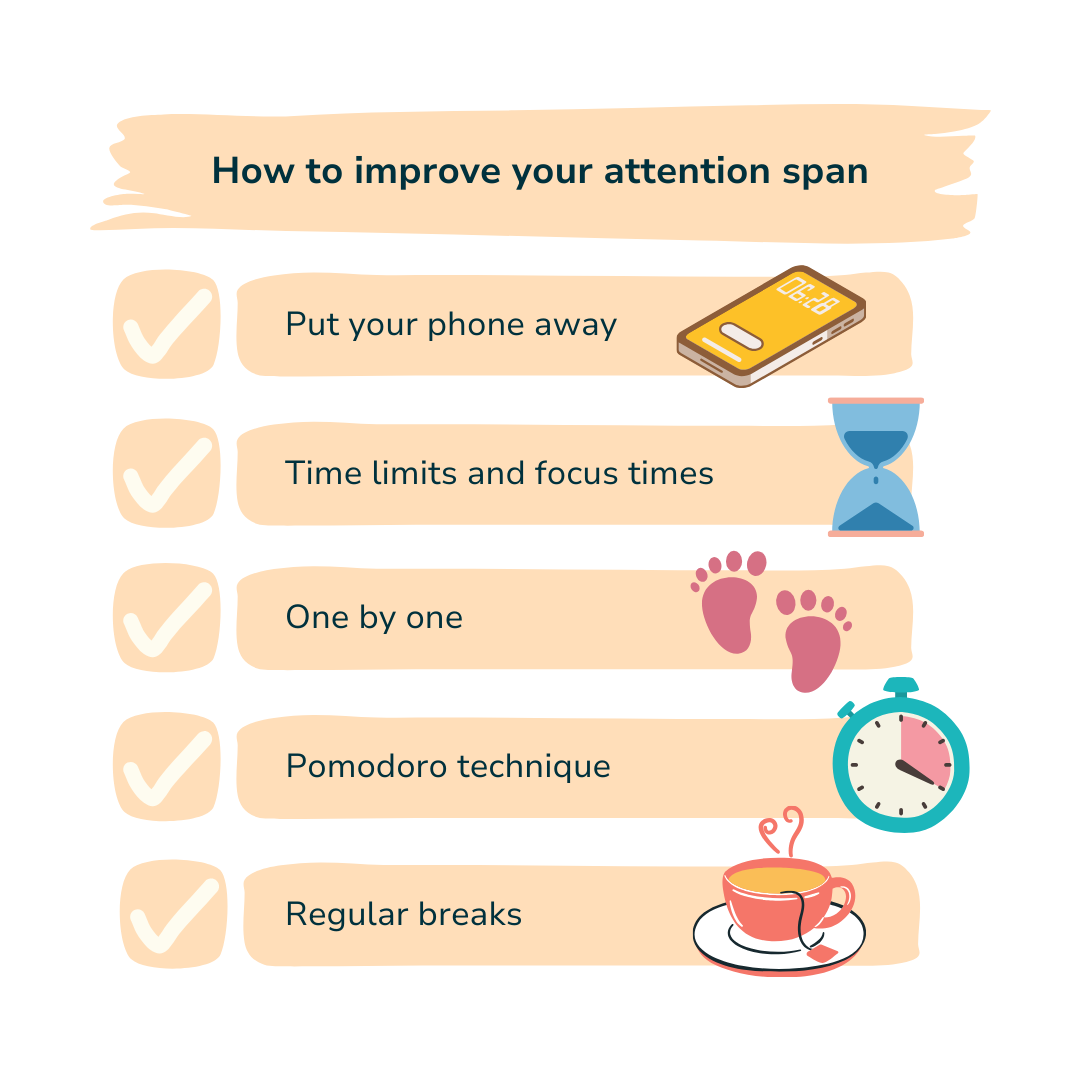Focus instead of distraction: tips to improve your attention span
11.04.2025 | reading time: 3 minutes
Do you know this feeling? You swipe from reel to reel until you find something interesting. After 20 seconds, it's over and you quickly move on to the next content. Looking at the clock can then be a shock: ‘What? Two hours over already?’
At school, however, time can pass painfully slowly and your thoughts may keep wandering. It's then particularly tempting to secretly reach for your phone. You see - it's quite a challenge to maintain your concentration when entertainment is just a few clicks away.
But why is it so difficult to resist the phone? It's because social media is designed to raise our interest and drive up our usage time: videos that start on their own, bright colours and constant notifications attract our attention like a magnet. All of this literally sucks us in. Because: more usage time means more money for the social media companies.

But what can you do to escape the attention magnet? Here are a few tips for you:
1. Put your phone away
It has been proven that concentration is worse when the mobile phone is in the same room - even if it is upside down on the table. It is therefore best to put your phone out of the room as soon as you need to concentrate.
2. Set focus times and time limits on your phone
Use an app or set focus times on your phone to block messages during certain times of the day, e.g. while you are at school or doing your homework. The messages you receive will then only be displayed as soon as the focus time is over. You can also set time limits for certain apps, which will be blocked as soon as the time has elapsed.
3. One by one
Try to complete one task at a time instead of trying to do everything at once. It's best to start with the task that is most important. As soon as you have finished it, do the second most important one and so on.
4. Use the Pomodoro technique
With the Pomodoro technique, you work in blocks and take short breaks in between, which are limited in time. For example, you do your homework for 25 minutes, then take a five-minute break and then continue for another 25 minutes. After four blocks of work, you can take a longer break (approx. 15-20 minutes). Make sure you stick to your breaks consistently and do not extend them. It's best not to spend your breaks on your phone, but perhaps listen to some music or go for a walk.
5. Regular (active) breaks
Regular breaks in which you move around, e.g. by going outside for a quick breath of fresh air or occupying your mind in other ways, such as reading, making music, playing games, doing handicrafts or whatever is good for you, are important for your concentration. Make sure you don't sit on your mobile phone during breaks.
In the end: see what helps you personally - you probably won't be able to find out at the first attempt. So be patient with yourself and keep trying to take your attention off your phone. Good luck!
Is it difficult for you to complete tasks straight away and put them off and spend so long on your phone? Then take a look at our last news blog article about "Procrastination" for tips.